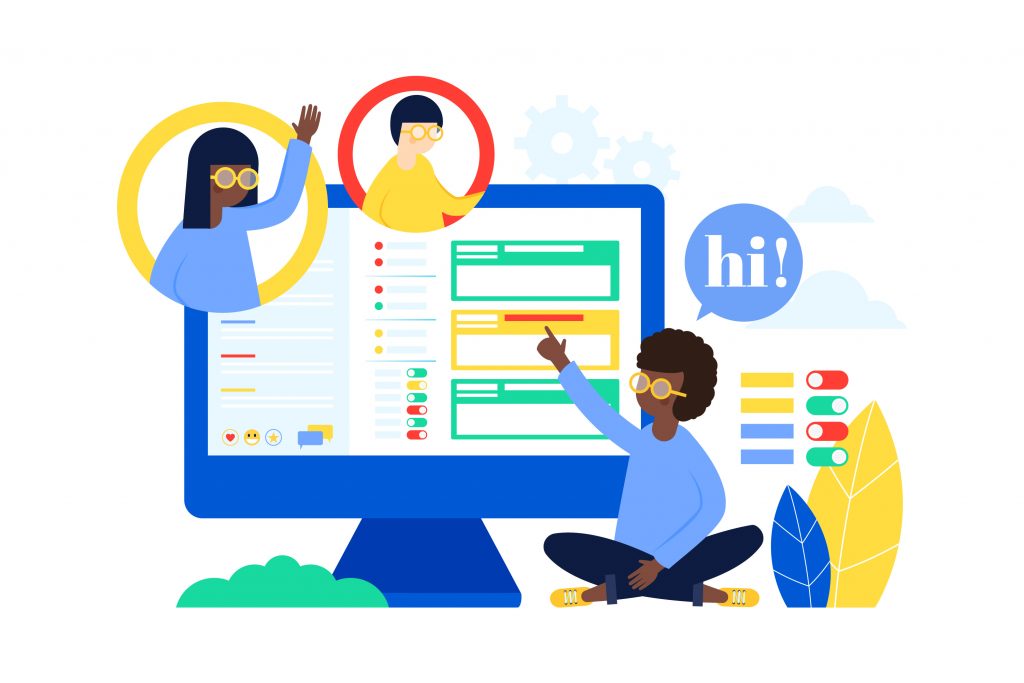HR departments and managers use performance management software to analyze employee performance and ensure alignment with business goals. This sort of solution can be either a stand-alone program that connects with other HR systems, such as payroll, or a module inside a larger HR management platform.
In general, HR performance management software powered by the best app development solutions, allows you to define employee objectives and expectations, track employee performance in real time, coach, hold one-on-one sessions, gather feedback, and award workers for their achievements. After collecting performance data, managers may make better informed decisions about remuneration and growth at both the individual and organizational levels.
80% of business enterprises now utilize HR software to cover gaps in their HR management requirements.
Why Is HR Performance Management Software Important?

Integrating HR performance management software with other business systems can improve workforce productivity, employee engagement, turnover, and revenue per employee, as well as support human capital management decisions.
For example, HR performance management software collects and quantifies data from employee/manager interactions, such as individual career goals, relevant skill sets, and overall appropriateness for succession planning. With these insights, learning and development funds may be allocated in a way that best meets the requirements of both the company and the person.
HR Performance management software delivers an accurate and real-time perspective of the workforce, assisting with people planning and strategy.
Also Read: Importance of User Testing In Software Development Process
What Business Problems Does HR Performance Management Software Resolve?
An HR performance management software can help address a variety of corporate challenges, including:
-
- Failure to acknowledge and reward top achievers leads to the loss of elite talent.
-
- Financial losses due to inefficient work methods that do not fit with the goals of the firm
-
- A lack of standardized approach to inform remuneration, promotion, and termination choices.
-
- The inability to establish that these choices were justifiable when questioned legally.
Features of HR Performance Management Software
HR Performance Management Software has several features. Let’s take a look at all one by one:
-
- It provides a customizable solution for HR teams designed to foster a culture of constant feedback, development, and responsibility, hence enhancing performance across workers and managers alike.
-
- It provides managers with tools they need to analyze their team’s performance in real time with AI-powered insights and become better trainers.
-
- Employees can use tools to communicate, request feedback, and take responsibility for their own growth and development.
-
- HR performance management software offers an awesome suite of tools for improving performance — including goal setting, feedback, and performance evaluation.
-
- With HR Performance management software, HR managers can easily monitor the strength and skills of the employees.
-
- By using this software new positions will be filled faster and by the most suitable candidates.
-
- Every employee and HR manager can see the time duration they have spent on a particular project. Projects and timesheets can be managed very easily with HR performance management software.
Also Read: Importance of Converting Your Website To An App
What Are the Types of HR Software?
HR software is classified into three primary categories: HRMS, HRIS, and HCM. Despite their frequent interchangeability, there are numerous technical differences between the two. Additionally, certain HR software concentrates on particular human resources functions, including payroll, benefits administration, performance management, employee engagement, and learning management.
1. Human Resources Management System (HRMS)
Human resources management systems (HRMS) are associated with process optimization and cost reduction. This sort of software streamlines an organization’s HR procedures by automating tasks and centralizing access to essential information.
Many HRMS packages complement typical HRIS capabilities with features for payroll, benefits administration, recruitment, and performance management. Some HRMS provide options for more extensive reporting and forecasting, including as succession planning and position control.
2. Human Resources Information System (HRIS)
Human resources information systems (HRIS) provide a wide range of HR data management features. These multi-function systems are designed to retain individual employee data while also meeting the company’s regulatory and legal employment needs.
An HRIS holds important information about an organization’s personnel, such as workers’ personal information, job details, performance metrics, and salary history. HRIS solutions can also serve as a central store for critical HR documents such as employment contracts, tax forms, and policy manuals.
An HRIS can be a stand-alone solution that connects with other HR applications, or it can function as a core database in a comprehensive HR software package. At its heart, an HRIS program optimizes procedures related to HR record-keeping and reporting.
There are five forms of HRIS: operational, strategic, tactical, limited-function, and comprehensive.
3. Human Capital Management (HCM) Software
Human capital management (HCM) software is frequently regarded as the broadest umbrella under the HR software category. Most HCM systems include all of the functionality of HRIS and HRMS platforms, as well as extra capabilities for employee engagement, learning management, and business intelligence. HCM software also provides extensive data analysis tools for corporate insight and HR process improvement.
HCM software improves human capital by simplifying all HR activities and providing an integrated view of the employee lifecycle. This breadth enables businesses to fully realize their people’ potential and contributions to organizational effectiveness. To that aim, HCM software includes tactical and strategic HR capabilities to keep employees engaged and motivated to achieve the company’s business objectives.
Also Read: Importance of Mobile App Testing for Your Applications
Final Words
The main role of HCM management software in organizations is to assess employee skills, track goals, and monitor performance over time. Generally, companies use HR performance management software to coach employees and evaluate performance during formal reviews or through weekly feedback. It gives HR managers a clear view of employees’ growth and development in their roles.
By teaming up with us for software development, your business potential can truly shine. You can enjoy a significant return on your investment. Our method is strategic. The HR performance management software we create for you isn’t just a tool. No, it’s a huge part of your success.







